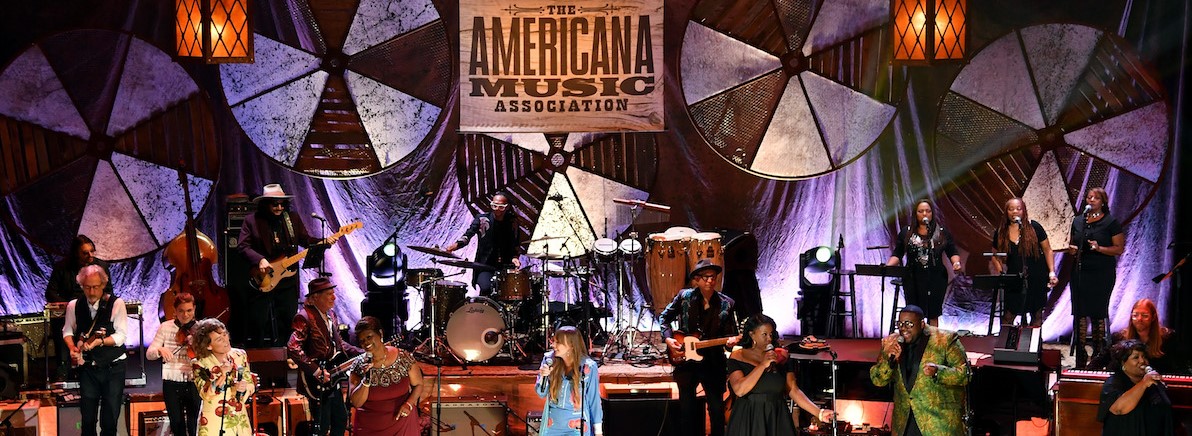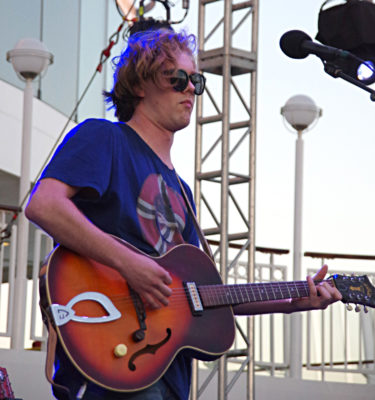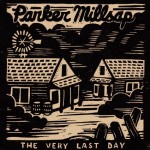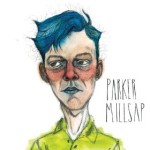By Paul T. Mueller
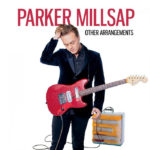 Parker Millsap’s new album, “Other Arrangements”, runs only 34 minutes. But the Oklahoma native packs a lot of goodness into the 12-song collection, his fourth release. It’s the work of a quickly maturing but still energetic artist, blessed with formidable writing and performing skills.
Parker Millsap’s new album, “Other Arrangements”, runs only 34 minutes. But the Oklahoma native packs a lot of goodness into the 12-song collection, his fourth release. It’s the work of a quickly maturing but still energetic artist, blessed with formidable writing and performing skills.
The sometimes raw potential of a few years ago has turned into solid accomplishment; Millsap’s voice is a little deeper and richer these days (although he can still yowl with the best of them), his guitar playing continues to improve, and his writing is still capable of eliciting laughter and tears, sometimes in the space of a single line. One gets the sense that none of this is going to change anytime soon.
The first brash notes of electric guitar in “Fine Line,” the album’s opener, serve notice that Millsap is ready to rock. “You better look out, look out, look out, I’m about to start swerving,” he shouts, later acknowledging, “All right, so I might be slightly unnerving/Honey, I don’t bite, I’m just a little bloodthirsty.” The title track is at once a declaration of romantic commitment and a plea for the same, and a fine showcase for violinist Daniel Foulks. Bassist Michael Rose and drummer Paddy Ryan shine on the jazzy/bluesy “Tell Me.” Millsap’s might be the only name on the cover, but this is very much a band effort.
Faith has long been an undercurrent in Millsap’s music, and it’s revealed here in the lyrics of several songs that could be addressing either earthly lovers or higher powers. “Singing to Me” features a hymn-like melody and lyrics of gratitude (“You’ve been singing to me all along/You kept on singing when everything went wrong”); the gentle “Your Water” gives thanks for salvation (“Your water/Your water/It floods my memory/And it quenches my soul”), and “Gotta Get to You” name-checks both Moses and one of the Earnhardts in its description of a journey that might be literal and might be something more.
Millsap channels a bygone era on the New Wave-ish “Some People,” a jagged rip at bad drivers (“They got their Tonka trucks/They got their Texas plates/They’re gonna cut you off/They’re gonna slam the brakes”) as well as haters, greedy people and those who are “just so bad’ and “just no fun.” And he throws in a little blue-eyed soul on “She” before closing with the gentle ache of “Come Back When You Can’t Stay,” a duet with singer-songwriter Jillette Johnson, who co-wrote the song and has been opening for Millsap on his current tour.
Between the powerful words and fine playing, Other Arrangements leaves the impression of an artist at ease with himself, exercising and developing his powers, and having a great time doing it.
